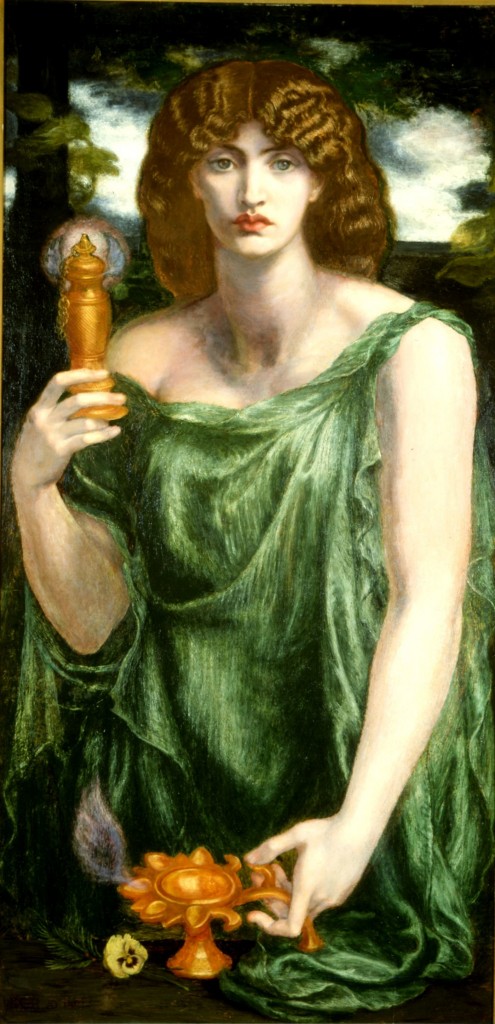
Mnemosyne, The Lamp of Memory, by Dante Gabriel Rossetti, thanks to Delaware Art Museum, Samuel and Mary R. Bancroft Memorial
Without memory, we would not understand who we are. If we could not recall our names, our addresses, our recent past, our likes and dislikes, if we didn’t remember our loved ones, our ancestors, our heroes, our favorite books, if there was no remembrance of things past, our childhood, our experiences, our emotions, we would be lost. Memory is a treasure, a resource, a source of joy and sorrow. And memory is malleable. Like clay, it can be strong and pliable or dried up and hardened.
In his introduction to Committed to Memory, editor/poet John Hollander reminds us of a story in Plato’s Phaedrus, where Socrates talks about the Egyptian god Thoth, who upon showing his written characters to the god Ammon, gets scolded. Ammon says, “This discovery of yours will create forgetfulness in the learners’ souls, because they will not use their memories. They will trust to the external written characters and not remember themselves.”
Before the written word, songs and stories were passed down from our ancestors orally. So much for all the self-help books that tell us to make lists of anything and everything, from grocery purchases to what we want to do before we die.
And what about all those digital tools we use to “help us” remember grammar and spelling, where we want to go and where we’ve been?
With Committed to Memory, Hollander asks us to return to the practice of memorizing poems and passages, which 50 years ago would have been the norm. He provides us with what he considers the 100 best poems to memorize.
How many poems do you have memorized? What are your favorites?
The following poem is one of the easier from Hollander’s collection.
The Owl and the Pussycat
By Edward Lear
The Owl and the Pussy-cat went to sea
In a beautiful pea green boat,
They took some honey, and plenty of money,
Wrapped up in a five pound note.
The Owl looked up to the stars above,
And sang to a small guitar,
“O lovely Pussy! O Pussy my love,
What a beautiful Pussy you are,
You are,
You are!
What a beautiful Pussy you are!”
Pussy said to the Owl, “You elegant fowl!
How charmingly sweet you sing!
O let us be married! too long we have tarried:
But what shall we do for a ring?”
They sailed away, for a year and a day,
To the land where the Bong-tree grows
And there in a wood a Piggy-wig stood
With a ring at the end of his nose,
His nose,
His nose,
With a ring at the end of his nose.
“Dear pig, are you willing to sell for one shilling
Your ring?” Said the Piggy, “I will”
So they took it away, and were married next day
By the Turkey who lives on the hill.
They dined on mince, and slices of quince,
Which they ate with a runcible spoon;
And hand in hand, on the edge of the sand,
They danced by the light of the moon,
The moon,
The moon,
They danced by the light of the moon.
More
- Dante Garbriel Rossette
- Robert Pinsky’s Favorite Poem Project
- “The Lost Art of Memorizing Poetry” , by Nina Kang (Salon)
